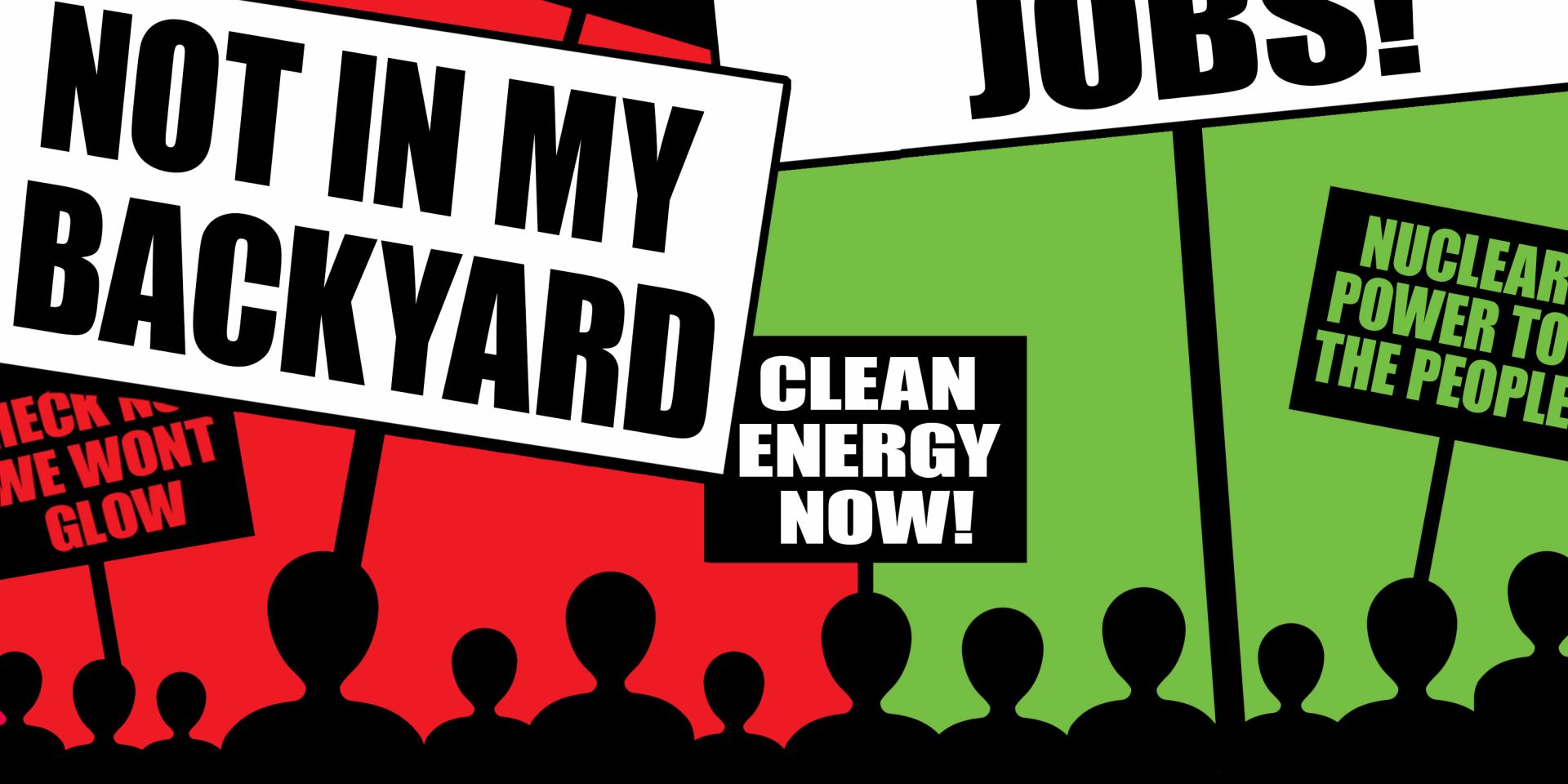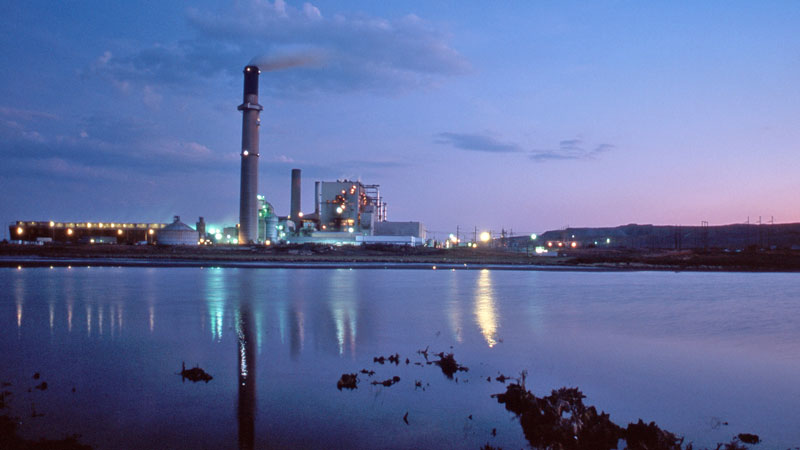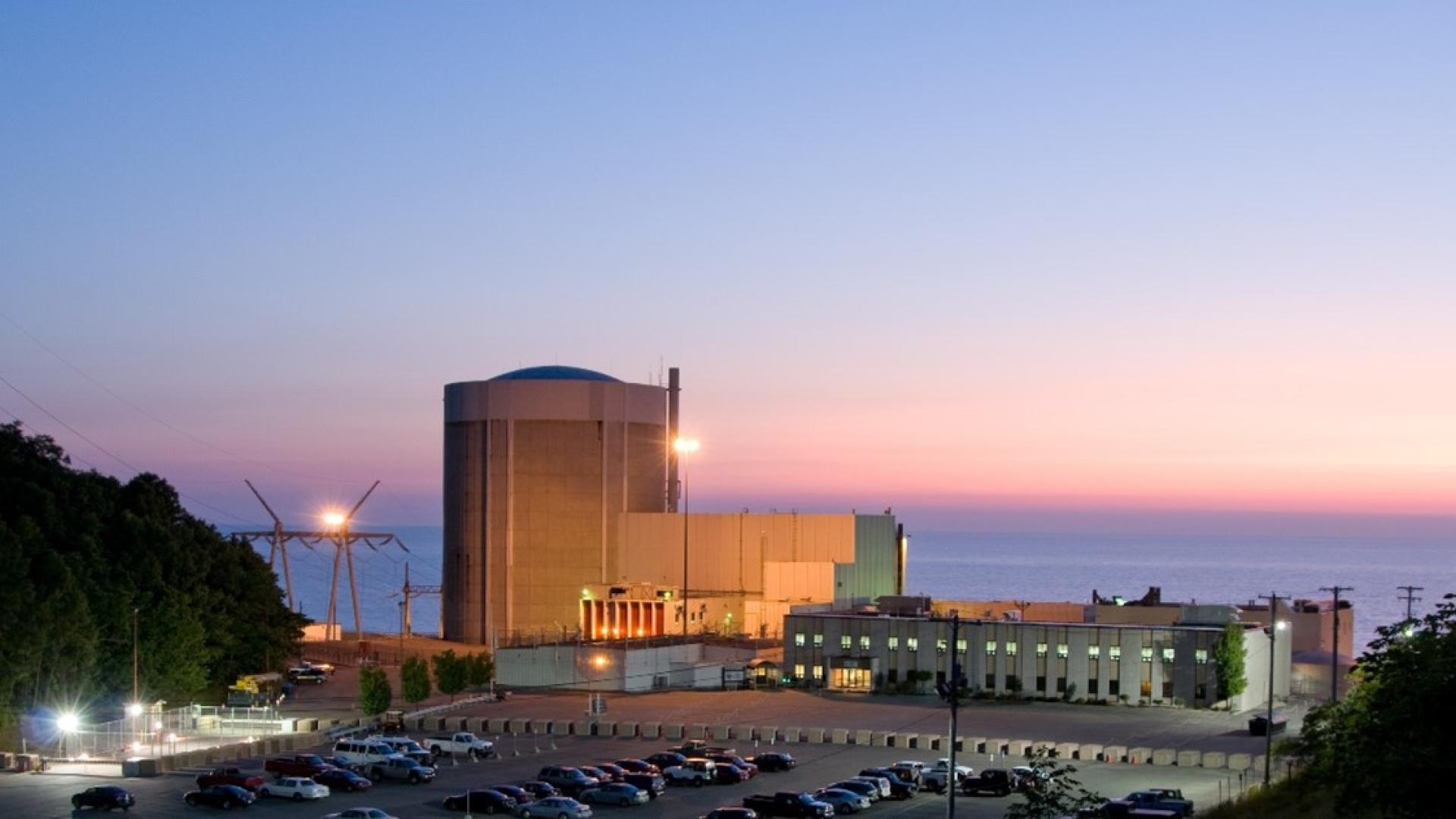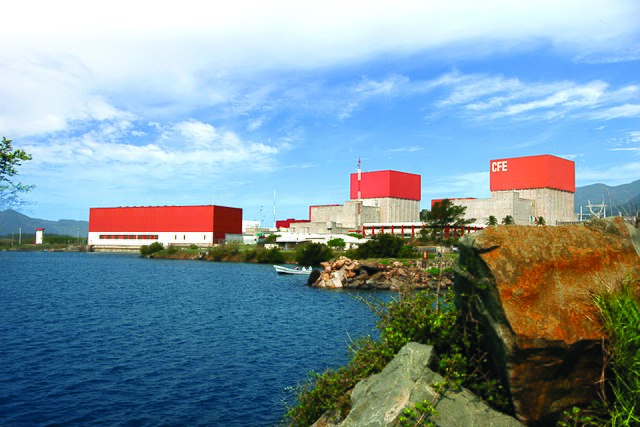The Prairie Island nuclear power plant. (Photo: Xcel Energy)
Clean energy technology firm Bloom Energy has announced plans to install a 240-kW electrolyzer at Xcel Energy’s Prairie Island plant in Red Wing, Minn., to demonstrate the benefits of producing hydrogen with nuclear power. (One of Xcel’s two nuclear plants, Prairie Island houses twin 550-MWe pressurized water reactors.)
How Kairos Power is applying rapid iterative development to the licensing process as part of its strategy to deliver on cost

Laufer
Developing a first-of-a-kind reactor is a daunting endeavor. To be successful, advanced reactor designers need to achieve cost certainty by delivering a safe and affordable product at the promised cost. To meet this goal, Kairos Power structured its approach around four key strategies: 1) achieving technology certainty through a rapid iterative approach; 2) achieving construction certainty by demonstrating the ability to build it; 3) achieving licensing certainty by proving Kairos can license it; and 4) achieving supply chain certainty by vertically integrating critical capabilities. By mitigating risk in these four key areas, Kairos Power is confident that it will get true cost certainty for our future products.
The third prong in Kairos’s strategy—achieving licensing certainty—was a key driver in the decision to build the Hermes low-power demonstration reactor, and it remains a major workstream as the company’s construction permit application (CPA) undergoes review by the U.S. Nuclear Regulatory Commission. Licensing a new nuclear technology is no small challenge, and there are multiple approaches companies can take. Here’s a look at how we at Kairos are approaching it.
Members of the Paragon Energy Solutions, Reuter-Stokes, and NuScale Power teams during a recent visit to Reuter-Stokes’ global headquarters in Twinsburg, Ohio. (Photo: Reuter-Stokes)
Paragon Energy Solutions and Reuter-Stokes have signed a contract to design and manufacture neutron monitoring detectors for small modular reactor developer NuScale Power.
The Zaporizhzhia nuclear power plant.
The International Atomic Energy Agency’s board of governors has adopted a resolution calling for an immediate end to the Russian occupation of Ukraine’s Zaporizhzhia nuclear power plant. According to a report from Reuters, the 35-member board voted 26–2 yesterday in favor of the resolution, with seven abstentions. The two “no” votes were cast, unsurprisingly, by Russia and China, while abstentions came from Burundi, Egypt, India, Pakistan, Senegal, South Africa, and Vietnam.
From left: NuScale president and CEO John Hopkins, Poland prime minister Mateusz Morawiecki, KGHM CEO Marcin Chludziński, and Ludwik Pieńkowski from AGH University of Science and Technology view a model of NuScale’s SMR technology. (Photo: Business Wire)
Portland, Ore.–based NuScale Power and KGHM Polska Miedź S.A. have signed the first task order and a statement of commencement to begin work under an agreement signed in February to initiate deployment in Poland of NuScale’s small modular reactor technology, the American firm announced this week. The task order was inked September 7 at the 31st Economic Forum, held September 6–8 in Karpacz, Poland.
Entergy’s Waterford nuclear plant, in Killona, La. (Photo: Entergy)
The Nuclear Regulatory Commission is increasing its oversight of the Waterford Steam Electric Station’s Unit 3 reactor due to a decade-long miscalibration of a radiation monitor.
In a September 13 letter to Entergy Operations, the NRC classified the issue at the Killona, La., facility as a “white finding”—agency parlance for a problem of low to moderate safety significance. (The NRC’s Reactor Oversight Process uses color-coded inspection findings and indicators to measure plant performance, starting at green and increasing to white, yellow, and red, commensurate with the safety significance of the issues involved.)
The Naughton coal-fired power plant near Kemmerer, Wyo., has two units set to retire in 2025 and be replaced by a TerraPower Natrium reactor. (Photo: PacifiCorp)
Nuclear power generation surpassed coal generation in the United States for the first time in 2020. As utilities continue to retire coal-fired plants, reusing the shuttered sites to host nuclear reactors could help the nation reach the goal of net-zero emissions by 2050 and prove economically beneficial both for nuclear deployments and for the communities impacted by fossil fuel generation. That’s according to a Department of Energy report released this week, detailing how hundreds of U.S. coal power plant sites that have recently retired or plan to close within the decade could be suitable for new nuclear power plants. Nuclear power’s high capacity factors mean those plants could deliver an added benefit—delivering more baseload power to the grid from the nameplate capacity replacement.
Interest rates have an outsized impact on nuclear power costs compared to those for other methods of power generation. (Source: World Nuclear Association)
In an essay titled “How the Fed will Strangle New Nukes,” published this week by American Thinker, nuclear engineer and writer Joseph Somsel warns that despite current expectations of a nuclear construction boom, “As in the late 1970s, rising interest rates will put the kibosh on new nukes.” Somsel therefore urges the financing and building of new nuclear facilities right now, before ongoing inflation and increasingly high interest rates “kill a lot of the plans” for new nuclear power plants.
The Palisades nuclear power plant. (Photo: Entergy)
Maybe hold off commenting on those Palisades decommissioning plans for now: Michigan Gov. Gretchen Whitmer last Friday penned a letter to energy secretary Jennifer Granholm pledging state support for a Holtec International plan to restart the recently shuttered Palisades nuclear plant in Covert, Mich. It was Whitmer’s second letter to the Department of Energy head expressing support for Palisades and touting its value to the state.
IAEA director general Rafael Mariano Grossi (at right) inspects damage at Ukraine’s Zaporizhzhia plant on September 1. (Photo: Fredrik Dahl/IAEA)
Artistic rendering of a Rolls-Royce SMR plant. (Image: Rolls-Royce)
Just one week after entering into an exclusive agreement with a Dutch nuclear development company to deploy small modular reactors in the Netherlands, U.K.-based Rolls-Royce SMR has announced the signing of a memorandum of understanding with Škoda JS to explore “areas of collaboration” for SMR deployment in both the Czech Republic and elsewhere in Central Europe.
The twin-unit Hatch plant (Image: Southern Nuclear)
Southern Nuclear, operator of the two-unit Hatch nuclear plant, announced yesterday that it will seek subsequent license renewals (SLR) for both reactors.
The Diablo Canyon nuclear power plant.
Bowing at last to the unflagging efforts of nuclear advocates over the past few years—as well as to more recent pressure from a former nuclear opponent, Gov. Gavin Newsom—the California legislature late last night approved S.B. 846, a measure that provides the option of extending operations at the Diablo Canyon nuclear power plant for five years beyond its scheduled 2025 closure date.
Pacific Gas and Electric, Diablo Canyon’s owner and operator, had agreed in June 2016 to an early shuttering of the facility, following discussions with organized labor and environmental organizations. PG&E’s application to close the plant was approved by the California Public Utilities Commission in January 2018.
The bill passed easily through both legislative chambers: 67–3 in the General Assembly and 31–1 in the Senate.
The Laguna Verde nuclear power plant. (Photo: HFStudio)
Unit 2 at Mexico’s Laguna Verde nuclear plant has been given the go-ahead to operate into the 2050s, plant owner and operator Comisión Federal de Electricidad (CFE) announced last week.
Mexico’s secretary of energy, Norma Rocío Nahle García, approved a 30-year extension to the unit’s operating license on August 25, following a review by the country’s National Commission for Nuclear Safety and Safeguards. The reactor, one of two at the plant, is now authorized to run until April 10, 2055.



.png)









 The Nuclear Regulatory Commission last Friday announced the publication of its
The Nuclear Regulatory Commission last Friday announced the publication of its 



